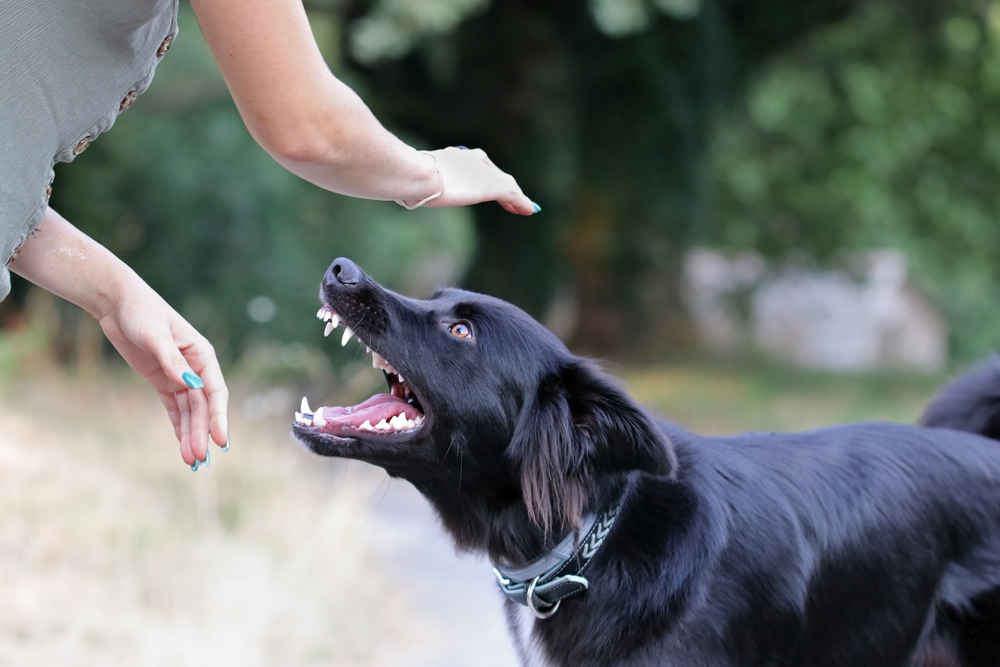Dog attack incidents can lead to extremely serious injuries, especially for elderly individuals and small children. When a dog fights a person, it may cause infectious injuries, bite marks on the skin, and deep puncture wounds that require stitches. A vicious dog may also attack a person, causing him to fall on the ground and suffer broken bones and other serious injuries.
If you or a person you love recently suffered injuries in a dog attack, you must immediately consult a knowledgeable Madison dog bite lawyer in your area. Your attorney can promptly contact the appropriate insurance company, file a claim on your behalf, and pursue the financial recovery you deserve.
Common Dog Attack Injuries
Dog attacks can result in injuries, from minor to severe, often necessitating medical attention. Understanding the common injuries associated with dog attacks is crucial for victims, dog owners, and the broader community. Here are some of the common dog attack injuries:

- Puncture Wounds — Puncture wounds are one of the most frequent injuries in dog attacks. Dog bites can lead to deep puncture wounds that may become infected due to bacteria in the dog’s mouth.
- Lacerations and Tears — Sharp teeth can cause lacerations and tears in the skin, muscles, and underlying tissues. Depending on the force of the bite, these injuries can be extensive and may require stitches or surgical intervention.
- Bruising and Hematomas — Blunt force trauma from bites can result in bruising and hematomas (collections of blood) at the site of the attack. This can cause pain, swelling, and discoloration.
- Fractures and Broken Bones — The force of a dog attack can lead to fractures or broken bones, especially if the victim falls or attempts to defend themselves during the attack. Fractures may require surgical intervention for proper healing.
- Infection — Dog bites risk infection due to the bacteria in a dog’s mouth. Infections can lead to complications if not promptly treated with antibiotics.
- Nerve Damage — Severe dog attacks can cause nerve damage, resulting in numbness, tingling, or loss of sensation in the affected area. Nerve damage may be temporary or permanent, depending on the extent of the injury.
- Scarring and Disfigurement — Some dog attacks result in permanent scarring and disfigurement, especially if the victim is a child or if the attack occurs on the face or hands.
- Emotional Trauma — Beyond physical injuries, dog attacks can cause emotional trauma, leading to symptoms such as anxiety, depression, or post-traumatic stress disorder (PTSD), particularly in children.
- Rabies Transmission — While relatively rare, dog bites carry the risk of rabies transmission. If the dog is not up to date on vaccinations or the victim cannot verify the dog’s rabies status, immediate medical attention is crucial.
- Fatalities — In extreme cases, particularly with large or aggressive breeds, dog attacks can result in fatalities. Fatal dog attacks are tragic events with profound consequences for victims and their families.
Preventing dog attacks involves responsible pet ownership, proper training, and behavior awareness. In the event of a dog attack, seeking immediate medical attention is essential to address injuries and reduce the risk of complications. You can also pursue legal action to hold dog owners accountable for their pet’s aggressive behavior.
How Do You Prove a Dog Attack Case?
Legally proving a dog attack case involves establishing key elements to hold the dog owner responsible for the victim’s injuries. Here are essential steps and considerations in proving a dog attack case:
- Identification of the Dog Owner — The first step is identifying and establishing the dog’s ownership. This is crucial for determining who is legally responsible for the dog’s behavior. If the owner is unknown, it becomes challenging to pursue legal action.

- Leash Laws and Control Measures — Many jurisdictions have leash laws and regulations specifying how owners must control their dogs in public spaces. If the dog was not properly restrained or controlled during the attack, it may strengthen the victim’s case. Photographs or witness statements confirming the absence of proper control can be valuable evidence.
- Dog’s History of Aggression — Demonstrating that the dog had a history of aggressive behavior is significant in proving negligence on the part of the owner. Previous biting or aggressive behavior incidents may establish that the owner knew the dog’s dangerous propensities.
- Violation of Animal Control Laws — Proving that the dog owner violated animal control laws or regulations strengthens the victim’s case. This may include failure to vaccinate the dog against rabies, failure to license the dog, or allowing the dog to roam freely in violation of local ordinances.
- Witness Testimonies — Eyewitness accounts are crucial in proving a dog attack case. Statements from individuals who observed the attack and can attest to the dog’s behavior, the owner’s negligence, or the victim’s innocence are invaluable.
- Photographic and Medical Evidence — Collecting photographic evidence of the injuries sustained in the dog attack is essential. This includes documenting puncture wounds, lacerations, bruising, and any disfigurement caused by the attack. Medical records detailing the extent of injuries and treatment received provide additional substantiation.
- Professional Testimonies — Seeking testimony from animal behavior specialists or veterinarians with professional experience is an option to analyze the dog’s behavior and validate negligence claims on the owner’s part. Their experience can help establish whether the dog’s actions were foreseeable and preventable.
- Proving Negligence — Central to a dog attack case is proving the owner’s negligence. This involves demonstrating that the owner failed to exercise reasonable care in controlling the dog, resulting in the attack. Establishing negligence is pivotal for a successful legal claim.
- Strict Liability Laws — Some jurisdictions have strict liability laws regarding dog attacks, holding owners responsible for their dog’s actions regardless of their previous behavior. Understanding and applying these laws can simplify the process of proving liability.
- Documentation of Damages — To pursue compensation, always document the damages suffered by the victim. This includes medical bills, therapy costs, lost income, and any other expenses resulting from the dog attack.
Seeking legal counsel from a dog bite attorney experienced in dog attack cases is essential. A skilled attorney can guide the victim through the legal process, help gather the necessary evidence, and present a compelling case to establish liability and secure fair compensation.
Filing a Claim with the Dog Owner’s Insurance Company
Filing a claim after a dog attack is a process that involves several crucial steps to seek compensation for injuries and damages. Here is a concise guide on what to do:
- Seek Medical Attention — The priority after a dog attack is immediate medical attention. This ensures proper care for injuries and creates essential documentation linking the injuries to the incident.
- Identify the Dog Owner — Determine the identity of the dog owner. Collect the owner’s name, address, and contact information if possible. This information is vital for filing a claim and establishing liability.
- Document the Incident — Document the details of the dog attack. Take photographs of injuries, the scene of the incident, and any relevant factors, such as an unleashed dog or lack of proper control.
- Gather Witness Information — If there were witnesses to the dog attack, collect their names and contact information. Witness testimonies can provide valuable support when filing a claim.
- Report the Incident — Report the dog attack to the appropriate authorities, such as animal control or law enforcement. This ensures that there is an official record of the incident.
- Preserve Evidence — Preserve any evidence related to the dog attack. This may include torn clothing, damaged personal belongings, or any items affected during the incident.
- Obtain Medical Records — Obtain copies of all medical records related to the injuries sustained in the dog attack. These records serve as crucial evidence when quantifying damages in the claim.
- Consult a Dog Bite Injury Attorney — Seek legal advice from an injury attorney experienced in dog attack cases. An attorney can assess the claim’s viability, guide you through the legal process, and protect your rights.
- File a Claim with the Dog Owner’s Insurance — In most cases, someone seeks compensation for a dog attack through the dog owner’s homeowners’ or renters’ insurance. Your attorney can assist in filing a claim with the insurance company, presenting evidence of liability and damages.
- Negotiate or Litigate — The insurance company may negotiate once you submit the claim. Your attorney will work to secure a fair settlement. Legal action, such as filing a lawsuit, you can take further action if an agreement isn’t satisfactory.
Remember, each dog attack case is unique, and the specific steps may vary. Consulting a dog bite attorney is crucial to navigating the complexities of the legal process, maximizing the chances of a successful claim, and ensuring that you receive fair compensation for your injuries and damages.
Financial Compensation for Dog Attack Injuries

In dog attack cases, victims may be entitled to various monetary damages to compensate for the incident’s physical, emotional, and financial toll. Since every dog attack incident is different, the amount of monetary compensation you may recover through a personal injury claim or lawsuit will vary depending upon the circumstances, including the specific injuries you suffered in the incident, as well as the medical treatment you underwent and the total cost of that medical treatment.
Monetary damages in dog attack cases aim to address the specific losses incurred by the victim. The following are key types of monetary damages in dog attack cases:
- Medical Expenses — Victims can seek compensation for all medical expenses resulting from the dog attack. This includes emergency room visits, surgeries, hospital stays, medications, rehabilitation, and any future medical treatments required for injuries sustained in the attack.
- Pain and Suffering — Pain and suffering damages account for the physical and emotional distress experienced by the victim. This includes the pain from injuries, emotional trauma, anxiety, and any long-term psychological effects resulting from the dog attack.
- Disfigurement or Scarring — If the dog attack leads to permanent disfigurement or scarring, victims may receive compensation for the aesthetic impact on their appearance. The amount awarded considers the severity and visibility of the scarring.
- Loss of Consortium — You can claim damages for loss of consortium if the injuries from the dog attack significantly impact the victim’s relationships. This includes the loss of companionship, support, and services provided to their family by the injured party.
- Lost Wages and Future Earnings — Victims can seek compensation for lost income from time taken off work due to injuries sustained in the dog attack. Additionally, victims may be entitled to compensation for future lost earnings if the injuries lead to a diminished earning capacity or the inability to return to work.
- Property Damage — In cases where personal property, such as clothing or belongings, is damaged during the dog attack, victims may seek reimbursement for the cost of repairs or replacement.
- Therapy and Counseling Cost — Victims of dog attacks often require therapy or counseling to address the emotional trauma associated with the incident. You can seek compensation for the costs of therapy sessions and counseling services.
- Funeral Expenses (Wrongful Death) — In tragic cases where a dog attack results in the death of the victim, surviving family members may pursue compensation for funeral and burial expenses.
- Legal Fees and Court Costs — Victims may seek reimbursement for legal fees and court costs associated with pursuing a dog attack claim. This ensures the victim does not entirely bear the financial burden of seeking justice.
- Punitive Damages — The court may award punitive damages for extreme negligence or malicious intent. These damages aim to punish the dog owner and deter similar behavior in the future.

Quantifying these damages requires thoroughly assessing the victim’s injuries, emotional distress, and overall impact on their life. Consulting a dog bite attorney experienced in dog attack cases is crucial for accurately evaluating the damages and building a compelling case to secure fair compensation.
Call a Dog Bite Lawyer Near You Today
If you or a person you care about suffered injuries in a dog attack, you need to consult an experienced attorney right away. An experienced dog bite lawyer in your area can take the appropriate legal steps to secure the financial recovery you deserve, helping you become whole again.
 Calls Answered 24/7
Calls Answered 24/7




